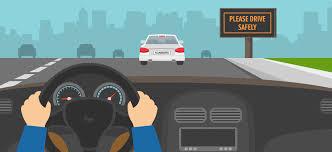What Age is Best at Driving? Can Learn Car at 50?
When it comes to driving, age is often a hotly debated topic. Some people believe that younger drivers are more reckless and more likely to cause accidents, while others argue that older drivers are more prone to making mistakes due to declining vision, hearing, and reaction times. So, what age is best at driving? In this article, we’ll explore some of the factors that can affect driving ability and safety across different age groups.

Teenage Drivers
Teenage drivers are often seen as the most inexperienced and risky drivers on the road. Statistics show that teenage drivers have the highest crash rates of any age group, with an average of six teen deaths every day due to motor vehicle crashes in the United States alone.
There are several reasons why teenage drivers are at a higher risk of accidents. For one, they are often more likely to engage in risky behaviors like speeding, distracted driving, and driving under the influence of drugs or alcohol. They may also lack the experience and judgment necessary to make split-second decisions in dangerous situations.
However, it’s important to note that not all teenage drivers are the same. Some teens are more responsible and cautious behind the wheel than others, and factors like driver education, parental involvement, and the presence of graduated driver licensing programs can all help reduce the risk of accidents among young drivers.
Young Adults
Young adults in their 20s and early 30s are generally considered to be in their prime driving years. They have gained some experience behind the wheel but are still relatively free of age-related declines in vision, hearing, and reaction times.
However, young adults are not immune to accidents. They are still more likely to engage in risky driving behaviors than older adults, and may also be more prone to distractions like smartphones and other devices.
Middle-Aged Adults

Middle-aged adults in their 40s and 50s are generally considered to be among the safest and most responsible drivers on the road. They have plenty of experience behind the wheel and have typically developed good driving habits and a solid understanding of traffic laws and safety rules.
However, middle-aged adults may start to experience some age-related declines in vision, hearing, and reaction times, which can affect their driving ability. They may also be more likely to develop health problems like arthritis or diabetes, which can make it more difficult to operate a vehicle safely.
Older Adults
Older adults in their 60s and beyond are often subject to stereotypes about being slow, unresponsive drivers. While it’s true that older adults may experience some age-related declines in physical and cognitive abilities, this does not mean that they are automatically unsafe behind the wheel.
In fact, some studies have shown that older drivers may actually be safer than younger drivers in some respects. They tend to be more cautious and defensive behind the wheel, and may be less likely to engage in risky behaviors like speeding or distracted driving.
However, older adults may still be at risk of accidents due to declines in vision, hearing, and reaction times, as well as other age-related health problems. It’s important for older drivers to stay up to date on their medical care and to make adjustments to their driving habits and vehicle as needed to ensure their safety on the road.

Conclusion
There is no one “best” age for driving. Different age groups may have different strengths and weaknesses when it comes to driving ability and safety. However, with proper education, training, and attention to safety, drivers of all ages can reduce their risk of accidents and enjoy the freedom and independence that comes with being behind the wheel.
Can Learn Car at 50?
Learning to drive a car can be a daunting task at any age, but it’s never too late to start. In fact, many people learn to drive for the first time in their 50s, 60s, or even later in life. If you’re wondering whether you can learn to drive a car at 50, the answer is yes! Here are some things to keep in mind as you embark on your driving journey.
Physical and Cognitive Abilities
One of the biggest concerns for older drivers is the impact of age-related declines in physical and cognitive abilities on driving ability. As we age, our vision, hearing, and reaction times may decline, which can affect our ability to safely operate a vehicle.
However, this does not mean that older adults are automatically unsafe drivers. With proper medical care and attention to safety, many older adults are able to continue driving safely well into their golden years.
If you have any concerns about your physical or cognitive abilities, it’s important to talk to your doctor or a driving specialist before getting behind the wheel.

Driver Education and Training
Regardless of your age, proper driver education and training are key to becoming a safe and confident driver. Many driving schools offer courses specifically designed for older adults, which can help you feel more comfortable and confident on the road.
During your training, you will learn the rules of the road, how to operate a vehicle, and how to handle different driving situations safely. You will also have the opportunity to practice your driving skills under the guidance of a trained instructor.
Graduated Driver Licensing
Some states have graduated driver licensing programs that are designed to help new drivers gain experience and gradually build their skills over time. These programs often include restrictions on driving at night, driving with passengers, and other potentially risky behaviors.
While graduated driver licensing programs are typically aimed at younger drivers, they can also be beneficial for older adults who are learning to drive for the first time.

Getting Comfortable with the Vehicle
Learning to drive can be intimidating, especially if you’ve never been behind the wheel before. One of the first steps in learning to drive is getting comfortable with the vehicle itself.
Take some time to familiarize yourself with the controls and features of the car, such as the accelerator, brake, and steering wheel. Practice starting and stopping the car, and get a feel for how the car handles.
Practice, Practice, Practice
Like any skill, driving takes practice to master. As you become more comfortable with the vehicle, it’s important to practice your driving skills as much as possible.
Start by practicing in an empty parking lot or other low-traffic area. Once you feel comfortable there, you can gradually work your way up to more challenging driving situations, such as city streets and highways.
Conclusion
Learning to drive a car at 50 is definitely possible, and it can be a great way to gain independence and mobility. By focusing on safety, getting proper education and training, and practicing your driving skills, you can become a safe and confident driver at any age.





